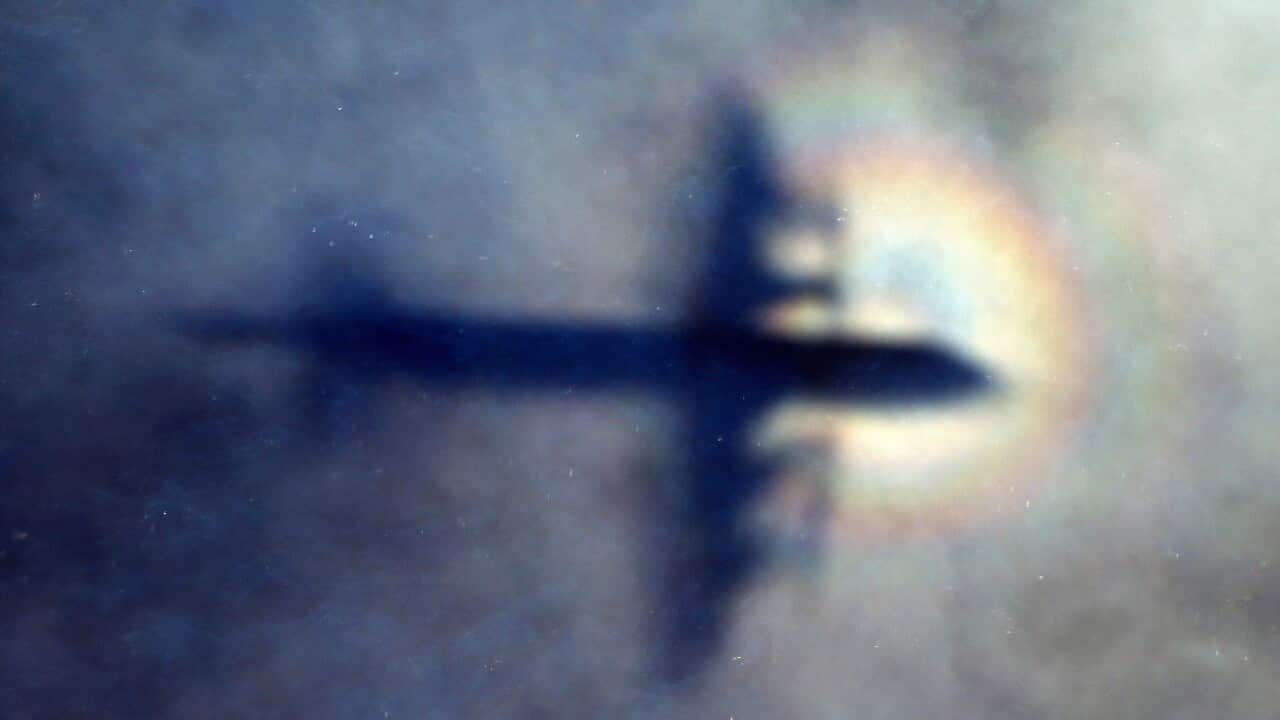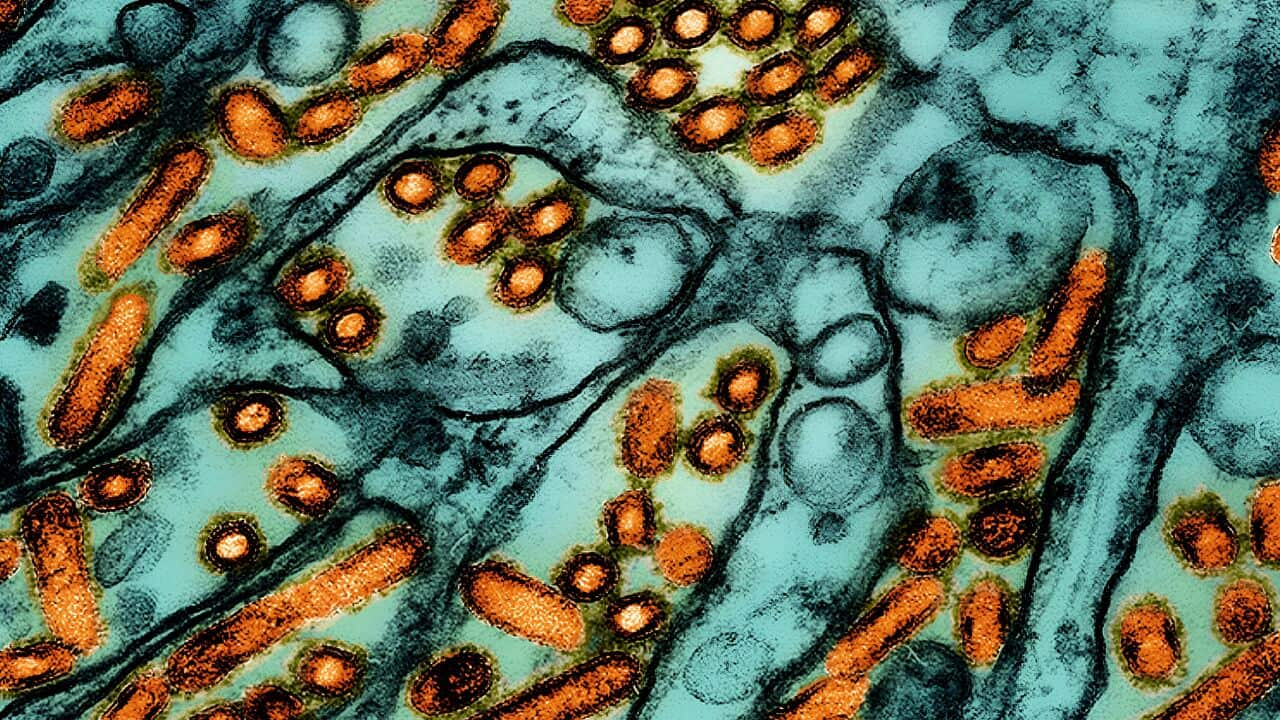TRANSCRIPT
There is a geological formation on the Martian surface that scientists say could be a huge ice water deposit - if melted, it would be enough to fill Earth's Red Sea.
Scientists operating Europe's Mars Express orbiter, which landed on the Red Planet back in 2003, initially studied the formation in 2007, but it was unclear what the deposits were made of - perhaps giant accumulations of dust, volcanic ash or sediment.
Now, 15 years later, new data suggests it's actually layers of dust and ice, topped with a protective layer of dust or ash several hundred metres thick.
Colin Wilson is a project scientist at the European Space Agency.
"Looking at 20 years of observations, and in particular looking at some of our more recent observations, where we've been able to make some improvement in the processing of the observations, it really does bear a lot of the properties we would expect from layered water ice."
Scientists now know Mars once looked very different to the way it appears today, with glaciers, lakes and river channels.
In 2004, Mars Express scientists confirmed the presence of ice on the Red Planet.
And in 2015, NASA said Mars appears to have flowing streams of salty water.
But Colin Wilson says one interesting aspect of this potential discovery is the location of the ice water - not at Mars' poles, but at its equator.
"These Medusae Fossae Formations look a lot like the polar caps when we look at them. So, this is really surprising, we don't expect to see a polar ice cap at the equator - it's as ludicrous on Mars as it would be on Earth - but that's what the data are telling us, saying it does look like that."
Scientists say they now believe the deposits to be around 3.7 kilometres thick.
If melted, the water would cover the entirety of Mars in a layer of water around two metres deep.
It's the most water ever found in this part of Mars, and enough to fill Earth's Red Sea, they say.
"It's a testament to how much water there would have been on Mars in the past to amass piles of water ice several kilometres thick, that's a vast amount of water. We've seen the evidence of lots of water on the Martian surface in other places. There's these sort of river valleys carved by water, there's flood outflow channels, and it's always been a mystery where that water has gone."
And Colin Wilson says the deposit's existence could prove a tantalising prospect for future human missions to the Red Planet.
But, at a depth of around 300 metres, it would take some drilling to reach.
"Finding water ice in low latitudes is really exciting for exploration goals. However, if it's 300 metres down, that's not very helpful for exploration goals. So, it's one of those ... it's almost very exciting and useful for exploration, but unfortunately, this probably won't be the answer to our human exploration needs."
Europe's Mars Express probe departed Earth in June of 2003 and arrived at Mars six months later in December.
It recently marked 20 years studying the Red Planet which, according to Gerhard Neukem [[gair-hart noy-kim]] of the Free University, revealed evidence of rivers on the planet in the past.
“And quite a number of the features we have seen were carved by or originated by the action of water on the surface of Mars."
Jim Green is the Director of Planetary Science at NASA and he says the NASA rovers are changing our understanding of Mars.
"Our rovers are finding that there's a lot more humidity in the air than we ever imagined. As we ingest the soils, they're moist. They're hydrated, full of water. These discoveries are very important, but they were only part of the hydrological cycle on Mars that we're just now beginning to understand.”












